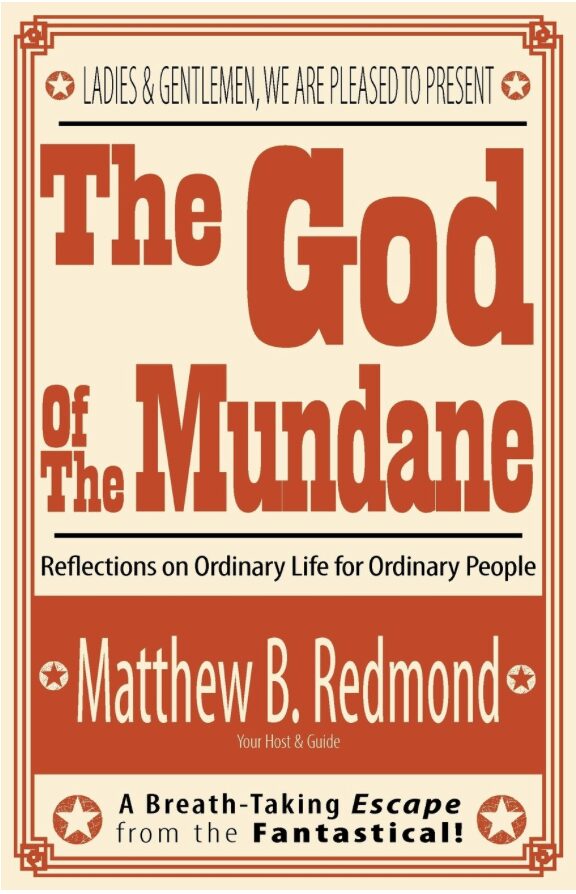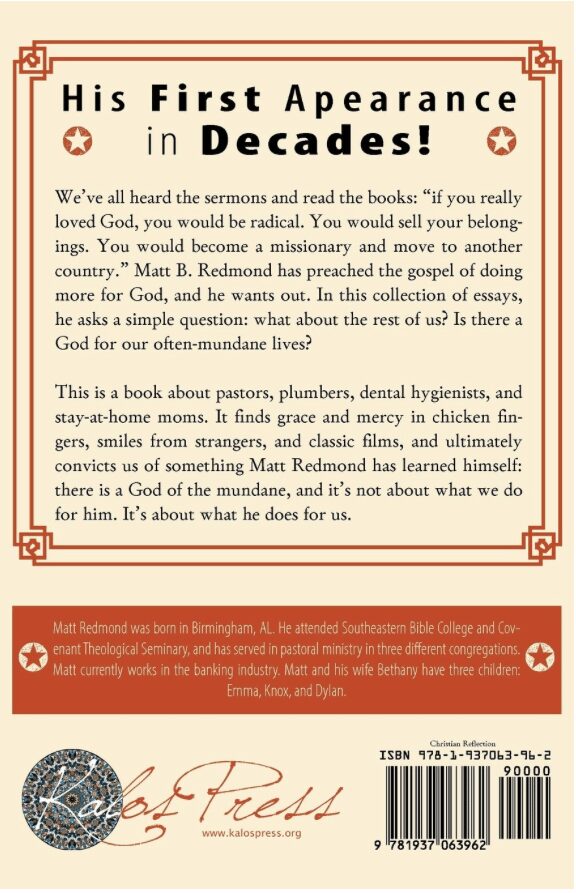
“10. This past week I talked very briefly with a parent whose child was sexually abused while a part of SGM. I could hear a hopelessness for any kind of justice this side of eternity. And I ask you to remember the absolute silence of the celebrity pastors and CJ Mahaney before you share an article by them on social media.”
Matt B. Redmond continues to demonstrate that he “gets it.” He is a gifted wordsmith and I encourage you to regularly visit his blog site. Way back when the sexual abuse scandal and cover-up at Sovereign Grace Churches first broke Redmond’s star appeared to be rising among the neo-reformed movers and shakers. That all came to a screeching halt when Redmond bravely spoke out on behalf of the victims instead of the powerful celebrities. Here is what he wrote in August, 2011:
“2. As of now, some SGM pastors have publicly apologized and reached out to those on the blogs (and this does not include Josh Harris’ public statements.) But this was only after the leak of Brent Detwiler’s documents (approaching 71,000 total reads) detailing the struggles to keep CJ accountable by the same standards he expects of others. It took such a thing as the leaking of these (emails, etc.) to get SGM pastors to acknowledge their callous handling of the victims of sexual abuse, using other people’s sins as blackmail, etc. That is terribly instructive. It is good it is happening, it is sickening it took the release of the documents.
3. We are no longer in a situation “if this is true then…” Too much has already been admitted by pastors of SGM churches. We are way past the ability to call this gossip. When we call this all mere gossip, we seek to silence those who have been crying out for years for justice and we do so from the safe side of those in power. But we as believers, should be longing to hear from those who have suffered, this is who we should be fighting for.
4. If we as a church ignore those who have been hurt in these kinds of situations because we do not want to push against a celebrity pastor, it proves we do not really care about justice. We toy with justice only. For four years a handful of blogs (start here and here) have been detailing abuses and injustice and only now are the SGM pastors acknowledging them. You may ask, “Are blogs the best way for victims to air their complaints?” They tried other means and were often further victimized.
5. Pastors under discipline at SGM churches have been expected to stay in their SGM churches after being removed from the pulpit, being “degifted” and otherwise. CJ Mahaney has refused to do this even though he was asked to do so by the other pastors of Covenant Life Church (the church he started and the flagship of SGM) and is now attending Capital Hill Baptist Church, a non-SGM church. The rules seem to have changed.
Before you dismiss all of this with a wave of the hand read this story aaaaand this one. Just two of the stories that are not being dismissed by the pastors of Covenant Life Church.”
http://mattbredmond.com/2011/08/15/updated-why-we-should-care-about-what-is-happening-in-sovereign-grace-ministries-sgm/
Matt B. Redmond has also written a great book which I highly recommend. And if you would pardon my crass commercialism, it would make a nice Christmas gift.
“For as long as I can remember I had been reading the letters to the churches in the New Testament and missing something. I missed it as a young man wanting to enter vocational ministry, and I missed it as a seminary student. I sadly missed it as a pastor. Sometimes we may miss things because they are hidden. But we seem to always miss much because we see it every day.
I missed the obvious: the Apostles are writing to normal people. Most of them are nameless. They are Jew and Gentile, yes. But they are also not apostles. And most are not pastors. They are carpenters, farmers, traders, sailors, fisherman, shepherds, guards. They are mothers and fathers and children. Compared to the life of an apostle, their lives are probably mundane. These are ordinary men and women believing an extraordinary story. They are not the Apostle Paul, or Peter, or any of the other apostles, who are immortalized in the pages of sacred writ. They are ordinary people who huddled in someone’s home, drank their wine, ate their bread, and listened to the Holy Spirit through the words of an Apostle. And then they went home. And they got up the next morning and lived a normal life, probably to the end of their days. And now, poof! They are forgotten.
My guess? Most of them lived out the rest of their lives after coming to faith with the most exciting thing in their lives being when they believed and aligned themselves with Christ and his people. They kept on living where they were and making a living as they did before they believed. They lived normal lives. Only more so. They listened to Paul’s teaching, learned from him, and in faith stayed where they were after he left. All of this should have been obvious to me but it wasn’t. For years I read and thought and then taught as if Paul was the standard for those I was teaching. “Look at Paul and his singular devotion to Christ,” I would implore them. And then it hit me. The nameless, ordinary believer who listened to Paul and lived faithfully as a farmer, mother, etc., right where they were — they are the standard. The forgotten mundane existence of those whose names we will never know is the endgame.
It is true Paul says to his readers, “imitate me…” And he says it more than once. In each instance, Paul wants his readers to see that he is an example of what he is asking of them in that particular context. His life is consistent with what he is teaching. He isn’t out of step. But he never asks them to stop being who they are. He never challenges them to go anywhere. We don’t even get hints that lead us to believe he is making them feel guilty for living in comparative comfort compared to his lack of it. That’s weird. And it’s weird because this is so common in our pulpits and in conferences held for zealous college students.
So many pastors today, famous ones and otherwise, are asking young people and everyone else if they are willing to give it all and go overseas as a missionary. It’s not a bad question to ask. There is no question in my mind that this question needs to be out there. But they — or someone — also needs to ask, “are you willing to be numbered among the nameless believers in history who lived in obscurity? Do you have the courage to be forgotten by everyone but God and the heavenly host? Are you willing to be found only by God as faithful right where you are? Are you willing to have no one write a book about you and what you did in the name of Christ? Are you willing to live and believe — in stark contrast to the world around you — there is a God of the mundane?”
“All this convinces me of one thing: there is a spirituality in the ordinary. There is a spirituality for ordinary people who live ordinary lives. Jesus did not die to change this so much as make it more so. We are not saved from mediocrity and obscurity, the ordinary and the mundane. We are saved in the midst of it. We are not redeemed from the mundane. We are redeemed from the slavery of thinking our mundane life is not enough.”
